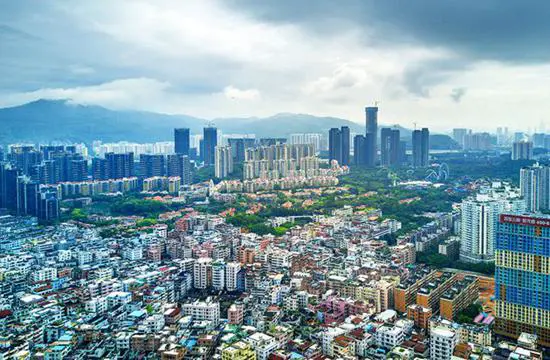The Kwangbok shopping complex, located in downtown Pyongyang, offered promotions on Monday in memory of the Dec. 15 visit by late top leader Kim Jong Il to the supermarket three years ago.
Built under Kim Jong Il's guidance and opened more than two years ago, the shopping center remains the largest in the Democratic People's Republic of Korea (DPRK) and sees a growing number of consumers.
The Kwangbok Area Business Center, by its official name, the first of its kind in the highly planned economy, has been a witness of the growing purchasing power of the DPRK people since Kim Jong Un took power in late 2011.
The project had earned strong endorsement from the leadership. On the very same day three years ago, Kim Jong Il inspected the completed shopping mall in company with Kim Jong Un. And that was also the last record of Kim Jong Il's public inspections before the state broadcaster announced his death two days later.
In Pyongyang, a majority of shops are not open on Monday and the Kwangbok supermarket is no exception. But this Monday the supermarket even opened its door one hour earlier at 10 a.m. local time (0100 GMT), and extended the closing time by two hours until 9 p.m, (1200 GMT) to promote sales on this particular day.
The direction of escalators movement in the mart has been intentionally changed to match the scene on the Dec. 15 visit. Right next to the escalators were placed two red boards saying these are the escalators that had been used by Kim Jong Il and Kim Jong Un.
Apples and oranges were undoubtedly the best-selling commodities on the promotion day, with people rushing around the fruits stand to buy. Oranges were sold 7,500 won (about 1 U.S. dollar) a kilogram and apples 8,500 won (about 1.18 dollars) a kilogram.
Displayed on the shelves are not only domestic commodities, but goods shipped from other countries like China, Vietnam and Singapore. This has offered the people a wide variety of choices and kindled their desire to spend.
About a dozen checkout counters are available for payment, but there were still long lines waiting. Almost every basket in the hands of the queuing customers was filled up with a heap of various kinds of food and daily-use products.
The three-story shopping complex was funded with investment by China's Feihaimengxin Trade Co. in 2009 in cooperation with its joint venture partner Daesung Trading Company, with a controlling 65 percent stake held by the Chinese firm. After two years of preparation and fitting, the plaza finally revealed itself to local people in January 2012.
While being not the only self-service store in the capital city, the shopping center, with a floor area of more than 27,000 square meters and a business area of 13,000 square meters, is indisputably the biggest one so far. It is also one of the very few supermarkets that accepts only domestic currency -- the DPRK won -- other than U.S. dollars, euros or Chinese yuan.
Wang Ping, a Chinese representative of the shopping center, said he is considering opening new outlets in Pyongyang as the only complex is seemingly inadequate for the ballooning demands of consumers.
The plaza will have to strengthen security to ensure safety of the visitors, given the huge footfall increase, he added.
At present Chinese-made products still make up the biggest proportion of the merchandise, but the share of domestic goods is climbing as an increasing number of local manufactures have been set up to meet the people's demands in response to the call for building "a strong and prosperous nation".
On the second floor where clothing, healthcare products, home furniture and musical instruments are sold, a notice released by the DPRK Central Bank was posted on the window of a currency exchange booth announcing the issuance of a new type of debit card called Jonsung, into which citizens can enter their domestic currency -- the DPRK won.
Previously, the DPRK Trade Bank issued U.S. dollar debit cards only, with which people are able to make transactions in greenbacks at hotels and restaurants that accept foreign currencies. The new card spares the trouble of carrying a big sum of won notes.
On the day several new kinds of products were put on display, including sunglasses and quartz watches. Shortly after, the first deal was made in the newly introduced products.
The complex provides catering services and a children's playhouse on the top floor. The fast-food style gourmet plaza offers various kinds of traditional Korean dishes like Bibimbap (rice mix with vegetables and meat) and Raengmyon (Korean cold noodles). The catering turnover alone accounts for nearly 40 percent in total and at noon on weekends people have to wait for tables.
The plaza sells 2,000 bowls of cold noodles a day on average, said the company.
The shopping center has decided to redesign the layout of the third floor, expand the catering service area, and introduce more fast food brands and variety in the coming months. Hamburgers, handcrafted coffee, desserts and hot pots are all expected to be brought in.
Since Kim Jong Un took office, the DPRK has made vigorous efforts for developing modern residential districts, as well as recreational facilities like amusement parks and skiing resorts.
Although the country rarely makes public its official economic statistics, it is still felt in details of life here that the people's spending power is getting stronger and stronger.
 简体中文
简体中文

